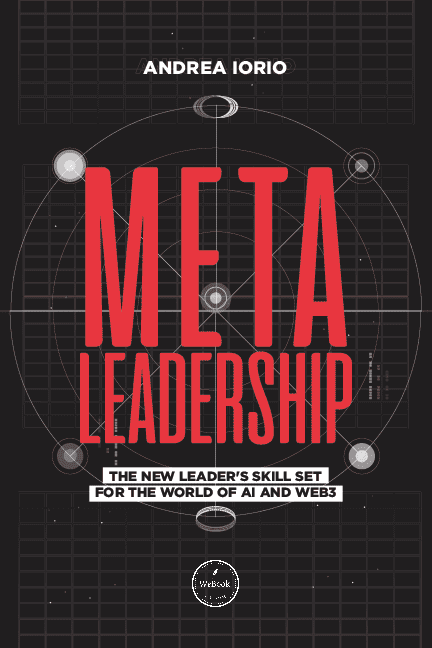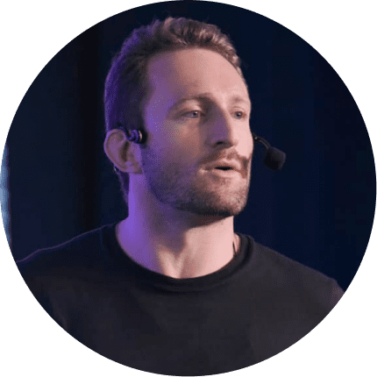Put yourself in the following situation: you are the head of a Marketing team, and they are launching a very important campaign. The most important campaign of the year, for a lipstick line. The company is all excited and looking forward to its launch.
For the digital media you guys spent a fortune hiring a top influencer to be part of the launch. But on launch day, a person from your team drops the ball and upon receiving the content created by the influencer, you realize that she mispronounced the product name in every video, and, after checking the briefing, you notice that someone from your team did not write the product name correctly.
The person responsible for this mistake, starts to get anxious about everything that could go wrong right now, specially if having to approach the influencer asking her to re-record the content at the last minute, because of a mistake the company made. She gets stuck, and you, as a manager, have to repress the anger and guide her to solve the situation, because there's no point in whining there.
To make her act, you have 3 options:
- You yell at her, urgently asking for new content, and clearly explaining what will happen if she doesn't get the job done.
- You ask her to calm down, and after she has calmed down, you ask her to apologize to the influencer. The problem is, you notice that the more you ask her to calm down, the more anxious she gets.
- You sit down with her and describe how cool it will be, after all this, to be able to tell the story internally of how you turned things around, and the overall success that the campaign will be. You notice that she doesn't calm down, but begins to change, turning anxiety into excitement.
The Coen Nun
The Coen Nun (known as Monja Coen in Brazil), has more than 7 published books, 1.7 million subscribers on Youtube, and 2.5 million followers on Instagram, and has become a public and social reference when talking about Buddhism and life in a simple way. In this article, we'll delve deeper into the similarities between anxiety and excitement, and how to turn stress and anxiety into happiness as Coen Nun tells us exactly that in the next sentence.
"Of course we have the anxiety of knowing all the answers like: what will happen today? What have I planned for today? Will it work? There's a lecture to give, there's a job to do, there's a meeting, a meeting with a person I like, I don't know how this meeting will be, and I get a little anxious. Once I went to visit Chagdud Tulpa Rinpoche's widow, who is from Três Coroas, her husband had just died and she had invited me to go to Três Coroas. When I got there, she said to me: "Nun, I was so anxious and happy with your visit, that I have been happy since yesterday." Isn't it nice to hear that? This is good anxiety: I'm going to meet with someone and I start to rejoice, to wait for you".
Let's start by defining what stress really is
Stress, in physics, means is when something wants to be in two places at once. If I apply pressure to both ends of an iron beam, I create stress on the beam because one part wants to be up and the other is down.
When we talk about our minds, stress is the inability to decide what is important. You want two incompatible things at the same time. I want to relax, but I need to work. That's what you think, and you get stressed. I want to travel, but I'm confined at home because of a quarantine. You get stressed. I want to be promoted and that's why I accept to play another project at the company, but I can't deal with all of this.
When you give up on something, on one of the opposites you have in your head, you stop being stressed.
The mind creates stress constantly, because of multiple desires that are conflicting, and that's normal, but if we don't resolve those conflicts, we'll never have peace of mind.
I'm going to ask you something now: concentrate and don't think about a white elephant.
Don't think of a white elephant, for God's sake.
What happened?
You just thought of a white elephant, right?
Do you know why? Because you cannot suppress the mind or force it to do anything.
Instead, you want to develop tools so your mind can settle down on its own. Then the stress will go away naturally.
Before we get into the "how" part, let me introduce one more villain here: anxiety.
Anxiety
Anxiety seems to work a little bit differently than stress, but the funny thing is that it works much more similarly to its opposite, excitement?
Okay, let me explain: think for a moment about what happens to you and your body when you get anxious. We feel tensions, we are restless and nervous. We may also start to sweat, breathe quickly, have trouble concentrating, and increase our heart rate.
Now think about what happens when we get excited…what are the effects? The symptoms are exactly the same! That knot in your stomach you feel before a first date, that's it.
What is the difference between anxiety and excitement?
The truth is that there is only one: the difference is in our interpretation. Only. Because it's exactly the same feeling. In other words, if we recognize these feelings as positive, we will be excited. If we see them as negative, we will be anxious.
Go back to the example of a first date: you will feel a knot in your belly before, this is normal, but if you focus on everything that can go wrong and worry before the judgment that the other person may make of the looks of your teeth, you can focus on everything that can work and feel excited. It's all up to you, how you interpret this sense of uncertainty and unpredictability that is inherent in life.
You see, there's a nice passage from the Little Prince where he says, when talking to the fox, "If I know I'll find you and that you'll arrive at the right time, I'm already happy a little before you come". In practice, it's the same thing as the example that Coen Nun made of Chagdud Tulpa Rinpoche's widow.
And you know the cool thing about having the ability to think like that? A study provided by the Harvard Business School shows us that excitement helps us perform better. To prove this, Alison Wood Brooks of Harvard Business School asked survey participants to repeat to themselves "I'm anxious", "I'm excited" or nothing, before performing a task well….out of the box. She actually asked them to sing "Don't Stop Believin", the famous hit song, in front of the group in an impromptu karaoke session.
Not only were the “excited” participants actually more excited, they also sang better, according to a computerized measurement of volume and pitch.
I, Andrea, am a bit suspicious of these tools because whenever I went to a karaoke, I got a score of 99 or 100, but I assure you, as a singer I'm a great speaker, but anyways... Similar results were found when they were asked to give a 2-minute speech on camera, and take a math test. The most interesting result of all? It's just that all the participants were equally anxious - even the enthusiastic ones. Simply saying they were excited didn't even change their heart rate. In fact, the only difference was that they found their experience more “exciting” than stressful.
It's the way we interpret situations that turn us from anxious to excited. As we said in the previous episode of Metanoia Club, we have control over little or nothing, but what we certainly have control over is our responses to the uncontrollable.
Again, we can have instinctive responses that can be negative, leading us to the two big villains we've talked about here, stress and anxiety, but we can then work on that to turn that into happiness.
Or rather, in peace of mind.
Because there is a here difference, and it is quite big.
There is a saying that goes lie this, “Peace is happiness at rest; happiness is peace in motion.” Because you see, someone who is calm a rest will be happy when doing an activity, while a happy person who is not dependent on external factors will be at peace. The ultimate goal is not happiness, although we use that term a lot, the goal is peace.
So the question is: How do you get peace?
The first problem with achieving peace is that no activity will get you there. Fundamentally, peace is inactivity; it's a feeling that everything is fine.
If all is well, you are not doing any physical or mental activity to change that. You also wouldn't want to be doing something to change that, because that creates stress. You don't have external desires, because that creates anxiety until you get those desires, and then you want more, and more.
Let's stop for a moment and talk about desires. I'm sorry, but desires are precisely the biggest catalysts for stress and anxiety.
How to deal with desires
"Andrea, but how can I let go of desires? Will I have to become a monk like Coen Nun or a hermit on a mountain? Is it my only option?".
Well, in the past, this was one of the main ways, but not even then it was so efficient. You would renounce things - sex, shelter, money and other material attachments - and go to a monastery. You might find some peace after 30 years, when you would finally get over the fact that you wouldn't have these things. But the truth is, it's much easier to achieve your material desires than to give them up… it's too hard to let go of everything! After all, everything you deny yourself will become your prison!
Desire is a contract that makes you unhappy until you get what you want. You are disturbed because you want something. So you work hard to get it and you're unhappy in the meantime. Finally, when you get it, you soon return to the state you were in before getting it, in a continuous cycle. It's not like you've reached a maximum level of peace of mind that will last forever. Nothing will make you happy forever. We have multiple desires, but I want you to reflect on the following Confucius sentence:
“A healthy man wants 10K things, a sick man wants only one thing.” That is, health.
We understand then that desires vary, new ones arise all the time if we don't control them, we can't count on them to obtain peace of mind.
On the contrary, I will tell you something that detachment from desires brings peace of mind.
A detachment from multiple desires at the same time minimizes stress, while a detachment from ambitious desires minimizes anxiety.
The problem? The modern and digital world was designed precisely to create stress and anxiety for us because that way we consume.
Who here has watched the movie Fight Club? Well, it's one of my favorites and it has three really cool lines from Tyler Durden, the character played by Brad Pitt, and who is the protagonist's alter ego, and which leads to his release throughout the film.
The first is that "the things we own end up owning us".
The second is that we are conditioned to "buy things we don't need, with money we don't have, to impress people we don't like". This one is strong, huh?
And the third is "it is only when we have lost everything that we are free to do anything".
And for a moment I want to focus on that last sentence, and say that, in life and in business, we stop doing important things because we don't want to give up everything we already have. But with that, we miss enormous opportunities to transform ourselves, to have new experiences, to find peace of mind.
I'll make one example: if you've invested in a newly purchased house, done a renovation, bought a lot of things and clogged it with clothes and decoration, you'll think twice about accepting a very good professional opportunity that came up in another city. You will think about how heavy the moving will be, think about everything you will be giving up, etc.
On the other side, if you have just a few things, live on rent, if you are somehow detached, you will probably be more likely to take advantage of this opportunity. I'm not saying here that the first scenario is bad, on the contrary: stability and possessions are great , but it is my duty, even more in an article fully dedicated to a Buddhist monk, to bring to light the inevitable dilemma that lies behind the accumulation of goods due to the desires we have.
At work, we live through the same drama: our company innovates, has huge success with a new product or service, we reach the market leadership, and that's when we start to protect our success with a lot of processes, bureaucracy, etc. The freedom that we have to the next innovation in a world that changes, makes us more hostage. The result? We don't move, we don't innovate, and that's too dangerous.
A practical challenge for you
I want to give you a practical challenge: I'm going to ask you to think about your biggest fear. Or one of the biggest fears, I don't know, for example, speaking in public. Think of something that makes you anxious just by thinking about it. And do the following exercise, which Victor Frankl, Holocaust survivor and author of the incredible book The Search for Meaning, calls "paradoxical intent": that is, want the exact opposite of what you want.
In the case of fear of public speaking, ask yourself "I want my heart rate to be as high as possible before I go on stage". In the case of insomnia, "I can't wait to have my mind racing so fast tonight that I won't be able to sleep." Or in the case of flying, think "I hope I feel as much adrenaline as possible when I get on that plane."
I know. It sounds crazy. But this is the twisted, reversed logic of anxiety. By turning our resistance to fear upside down, we create a new storyline for ourselves. We are no longer trying to get rid of anxiety, now we are just seeing it from a new perspective.
Research shows that this shift does not eliminate the physiological state of activation that comes with anxiety. It doesn't necessarily calm us down. However, it changes our experience of this state of high activation, from torture of anxiety to anticipation of the excitement that comes with it.
Think about it as homework, and tell me later at @aiorio_br.
Keywords Soft Skills: Monja Coen, Coen Nun, Buddhism, Harvard Business School, Happiness, Peace, Leadership, What are Soft Skills in Business, Example of Technical Skill, Technical Skill Examples, Soft Skill Development, Soft Skills for a Job, Business Soft Skills, Soft and Hard Skills, Why Are Soft Skills Important, Necessary Soft Skills, Necessary Soft Skills, Human Skills, Entrepreneurship, Andrea Iorio, Metanoia Lab, Metanoia Club, Meta Leadership, Podcast









